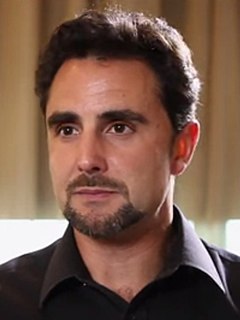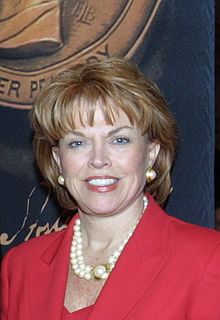A Quote by Herve Falciani
When I was young, I thought banks were there to protect the assets of people who had justified concerns, because of their experiences under communism for example.
Related Quotes
I think there's a disconnect between political leaders and young voters around a lot of things related to the private sector. For example, a lot of politicians continue to attack big banks. While I'm not a defender of big banks, my sense is younger voters have had generally pretty good experiences with banks.
I thought you were supposed to be the champion of your people,' I said. I live because I need to do that. For anyone who is left.' Don't you see? No one will be left. Protect them now or there will be no one to protect!' This is a battle that goes on and on. It never ends. You're too young to understand. No! You're too much of a coward to fight.' I was sick of lies and secrets and of battles so old we had to erase who we were to fight back. And still we lost. Still we were tied to posts.
Banks don't want certain asset classes, and that's created opportunities for private equity, hedge funds, Silicon Valley. In this case I think he was referring to some of the European banks shedding assets, and the big buyers are probably not going to be big American banks. Someone like Blackstone may have a very good chance to buy those assets, leverage them, borrow up a little bit, and do something good there.
There's only one thing that all of the central banks control and that is the base, their own liability, and they can control that in various ways. They can control it directly by open market operations, buying and selling government securities or other assets, for example, buying and selling gold, or they can control it indirectly by altering the rate at which banks lend to one another.
Governments having failed the people, the people are entirely justified in assuming for themselves an essential role in government. Where a government takes proper measures to protect the people under its care, such a proceeding might have been thought both unnecessary and unjustifiable: But here it is quite the Reverse.
The other reason I didn't want to fictionalize it is because one of the main points of publishing a memoir in nonfiction was that I wanted to write about what had been a very lonely experience. The books that most saved my life as a kid were the ones that articulated lonely experiences that I had thought were mine alone.
There were the days when women were under contract, and they were thought of as a commodity, so they hired the best writers and a lot of them were women at the time. This was in the thirties and forties, to make product for the people who were under contract, who were their assets to the studios. But that doesn't exist anymore - and as a result, the people who are in the industry write products that interest them.

































